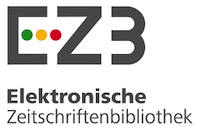Knowledge transfer in higher education institutions and companies: a bibliometric analysis between 2014 and 2024
Transferencia de conocimiento en instituciones de educación superior y empresas, un análisis bibliométrico entre 2014-2024
##plugins.themes.bootstrap3.article.main##
Knowledge transfer between higher education institutions and businesses is
an essential component of society’s progress and innovation. Objective. To examine this
dynamic of knowledge transfer in 252 papers published in the Scopus database. Methodology.
Bibliometrix and its RStudio application were employed to analyze the papers, which were
subjected to a variety of filters, including year of publication, prominent authors, most relevant
journals, and most frequently used keywords. Results. The number of papers published on
this topic increased significantly between 2014 and 2024, reflecting a growing interest in the
field. Additionally, a geographical distribution is observed, with substantial participation
from countries such as Spain, Colombia, and several Asian nations. Conclusions. These
findings provide a comprehensive overview of the interaction between higher education
and business, emphasizing its importance for innovation and national socioeconomic
development while enriching university students’ professional profiles.
Downloads
##plugins.themes.bootstrap3.article.details##
Álvarez-Aros, E.L. y Bernal-Torres, C.A. (2017). Modelo de innovación abierta: énfasis en el potencial humano. Información Tecnológica, 28(1), 65-76. DOI: https://doi.org/10.4067/S0718-07642017000100007
https://doi.org/10.4067/S0718-07642017000100007 DOI: https://doi.org/10.4067/S0718-07642017000100007
Álvarez-Muñoz, P. y Hernández-Domínguez, C. (2016). Análisis longitudinal del Sistema Bibliotecario Ecuatoriano. Revista Española de Documentación Científica, 39(4), 1-18. DOI: https://doi.org/10.3989/redc.2016.4.1327
https://doi.org/10.3989/redc.2016.4.1327 DOI: https://doi.org/10.3989/redc.2016.4.1327
Aria, M. and Cuccurullo, C. (2017). Bibliometrix: An R-tool for comprehensive science mapping analysis. Journal of Informetrics, 11(4), 959-975. DOI: https://doi.org/10.1016/j.joi.2017.08.007
https://doi.org/10.1016/j.joi.2017.08.007 DOI: https://doi.org/10.1016/j.joi.2017.08.007
Baglieri, D., Baldi, F. and Tucci, C. (2018). University technology transfer office business models: One size does not fit all. Technovation, 76-77, 51-63. DOI: https://doi.org/10.1016/j.technovation.2018.05.003
https://doi.org/10.1016/j.technovation.2018.05.003 DOI: https://doi.org/10.1016/j.technovation.2018.05.003
Bonilla, A. (2019). Acuerdo para la innovación, clave del desarrollo económico de Ecuador. Boletín de prensa Nº 153 (págs. 1-4).
Quito: Senescyt. Bom, Y. y Bolívar, J. (2018). Gestión del conocimiento y activos intangibles en universidades públicas. Revista Venezolana de Gerencia, 23(2), 401-422.
Codner, D., Baudry, G. y Becerra, P. (2013). Las oficinas de transferencia de conocimiento como instrumento de las universidades para su interacción con el entorno. Universidades, 58, 24-32.
Crossan, M., Lane, H. and White, R. (1999). An Organizational Learning Framework: From Intuition to Institution. The Academy of Management Review, 24(3), 522-537 DOI: https://doi.org/10.2307/259140
https://doi.org/10.2307/259140 DOI: https://doi.org/10.2307/259140
De Long, D. and Fahey, L. (2000). Diagnosing cultural barriers to knowledge management. The Academy of Management Executive, 14(4), 113-127. DOI: https://doi.org/10.5465/ame.2000.3979820
https://doi.org/10.5465/ame.2000.3979820 DOI: https://doi.org/10.5465/ame.2000.3979820
Escorcia, J. y Barros, D. (2020). Gestión del conocimiento en Instituciones de Educación Superior: caracterización desde una reflexión teórica. Revista de Ciencias Sociales, 26(3), 83-97.
Franco, M. y Pinho, C. (2019). A Case Study about Cooperation between University Research Centres: Knowledge Transfer Perspective. Journal of Innovation & Knowledge, 4(1), 62-69. DOI: https://doi.org/10.1016/j.jik.2018.03.003
https://doi.org/10.1016/j.jik.2018.03.003 DOI: https://doi.org/10.1016/j.jik.2018.03.003
Gómez, J.L., Bonilla, C.A. y Esteban, Y.C. (2022). Uso de TIC y TAC en la educación superior: un análisis bibliométrico. Revista Complutense de Educación, 33(3), 601-613. DOI: https://doi.org/10.5209/rced.73922
https://doi.org/10.5209/rced.73922 DOI: https://doi.org/10.5209/rced.73922
Gupta, P. and Kaushik, N. (2018). Dimensions of service quality in higher education - critical review (students' perspective). International Journal of Educational Management, 32(4), 580-605. DOI: https://doi.org/10.1108/IJEM-03-2017-0056
https://doi.org/10.1108/IJEM-03-2017-0056 DOI: https://doi.org/10.1108/IJEM-03-2017-0056
López, S., Mejía, J. y Schmal, R. (2007). Un acercamiento al concepto de la transferencia de tecnología en las universidades y sus diferentes manifestaciones. Panorama Socioeconómico, 24(32), 70-81.
Merchán, J. y Ramírez, N. (2023). Transferencia y divulgación del conocimiento: un estudio preliminar de análisis bibliométrico. Revista Interamericana de Bibliotecología, 46(3), e352479. DOI: https://doi.org/10.17533/udea.rib.v46n3e352479
https://doi.org/10.17533/udea.rib.v46n3e352479 DOI: https://doi.org/10.17533/udea.rib.v46n3e352479
Mungaray, A., Pimienta, R.B. y Ocegueda, M.T. (2021). Educación superior, productividad y crecimiento económico en México entre 2004 y 2015. Perfiles Latinoamericanos, 29(58), 1-22. DOI: https://doi.org/10.18504/pl2958-014-2021
https://doi.org/10.18504/pl2958-014-2021 DOI: https://doi.org/10.18504/pl2958-014-2021
Ocegueda, M.T., Pimienta, R.B. y Mungaray, A. (2022). Educación superior, industria y crecimiento económico en México: un reto pendiente en la agenda económica del país. Revista de la Educación Superior, 51(201), 111-131.
Pérez, J.A. y Botero, C.A. (2011). Transferencia de conocimiento orientada a la innovación social en la relación ciencia-tecnología y sociedad. Pensamiento & Gestión, 31, 137-166.
Pérez, O. (2019). Innovación y transferencia de tecnología en México. Un análisis empírico de datos panel. RIDE Revista Iberoamericana para la Investigación y el Desarrollo Educativo, 10(19), 1-18. DOI: https://doi.org/10.23913/ride.v10i19.503
https://doi.org/10.23913/ride.v10i19.503 DOI: https://doi.org/10.23913/ride.v10i19.503
Rojas, R.A. (2023). La educación superior para el 2050. Desafíos y oportunidades para un futuro no tan lejano. Revista Educación Superior y Sociedad, 35(1), 152-178. DOI: https://doi.org/10.54674/ess.v35i1.751
https://doi.org/10.54674/ess.v35i1.751 DOI: https://doi.org/10.54674/ess.v35i1.751
Solano, E. et al. (2009). La bibliometría: una herramienta eficaz para evaluar la actividad científica postgraduada. MediSur, 7(4), 59-62.
Torres-Salinas, D. y Jiménez-Contreras, E. (2012). Hacia las unidades de bibliometria en las universidades, modelo y funciones. Revista Española de Documentación Cientifica, 35(3), 469-480. DOI: https://doi.org/10.3989/redc.2012.3.959
https://doi.org/10.3989/redc.2012.3.959 DOI: https://doi.org/10.3989/redc.2012.3.959
UNESCO. (2023). La educación transforma vidas. Recuperado de https://www.unesco.org/es/ education. Wu, Ch. et al. (2018). Time Optimization of Multiple Knowledge Transfers in the Big Data Environment. Computers, Materials & Continua, 54(3), 269-285.
Zambrano, C. et al. (2019). Transfer mechanisms and strategic knowledge management in health and safety companies. Ingeniería y Competitividad, 21(1), 91-102 DOI: https://doi.org/10.25100/iyc.v21i1.7669
https://doi.org/10.25100/iyc.v21i1.7669 DOI: https://doi.org/10.25100/iyc.v21i1.7669



































